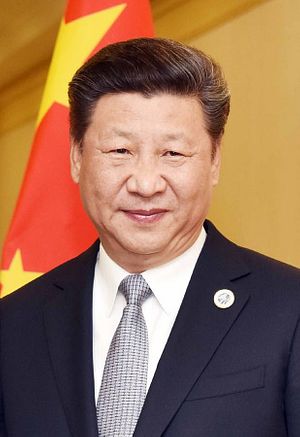In China’s political dictionary, political and legal work involves all the work related to China’s legal enforcement system, including the police force, the procuratorates, the ministry of justice, the judicial branch, the state security agency, and other relevant departments. Under China’s political system, all these authorities should follow the leadership of the Chinese Communist Party (CCP) and the Central Political and Legal Affairs Commission (CPLAC) — directly under the CCP’s Central Committee — oversees all these authorities in practice.
On January 22, the Central Political and Legal Work Conference was held in Beijing.
Guo Shengkun, the head of the CPLAC and a member of the Political Bureau of the CCP Central Committee presided over the meeting. During the meeting, Guo read Chinese President Xi Jinping’s instruction about the national political and legal work to the attendees.
In his instruction, Xi demanded that all law enforcement and judicial agencies should stick to the Party’s absolute leadership and at the same time maintain national political security and social stability.
Although the full text of Xi’s instruction was composed of propaganda-style cliches, the timing for his remarks is worth pondering.
Recently, China’s politics has seen a series significant developments that are directly or indirectly related to political and legal work, particularly to the CPLAC.
The most recent development is that the CCP has decided to add Xi Jinping Thought and the National Supervision Commission (NSC) — a centralized anti-corruption organ directly under the unified leadership of the Party — into China’s constitution, as The Diplomat has been following.
However, a large number of Chinese legal professionals — including Chen Guangzhong, 87, a leading jurist, former dean of the China University of Political Science and Law, and a pioneer widely regarded as “the father of China’s Criminal Procedure Law” — have come forward to voice their deep concerns over the NSC. They argued that the NSC — if established according to the early released draft of the National Supervision Law — will be granted supreme unchecked power (even above the Supreme People’s Court and the Supreme People’s Procuratorate) over all “public personnel” across the country.
Given that the CCP has made it clear multiple times that it will establish the NSC regardless, what the Party needs most now is absolute loyalty and absolute support from all the Chinese legal enforcement authorities mentioned above.
In addition, the whole of China’s political and legal system, particularly the CPLAC itself, has experienced and is still experiencing political turmoil — though that the turmoil cannot be publicly discussed in China official outlets.
Since Zhou Yongkang — a former member of China’s highest decision-making body and the former head of the CPLAC between 2007 and 2012 — was jailed for life in 2015 under the anti-corruption drive launched by Xi, the CCP has been intentionally decreasing the CPLAC’s power and trying hard to get rid of Zhou’s followers within the political and legal system.
As The Diplomat noted, the most recent development was that the CCP Central Committee decided to transfer command over Chinese People’s Armed Police Force (PAP) from the State Council to the Central Military Commission on January 1.
The PAP, which is responsible for domestic stability, civilian policing, border defense, fire rescue, and supporting the military during wartime, used to be the major tool for China’s political and legal system — led by the CPLAC — to maintain social stability.
Under the circumstances, it appears fairly necessary for Xi to stress the Party’s absolute leadership over political and legal work now.

































